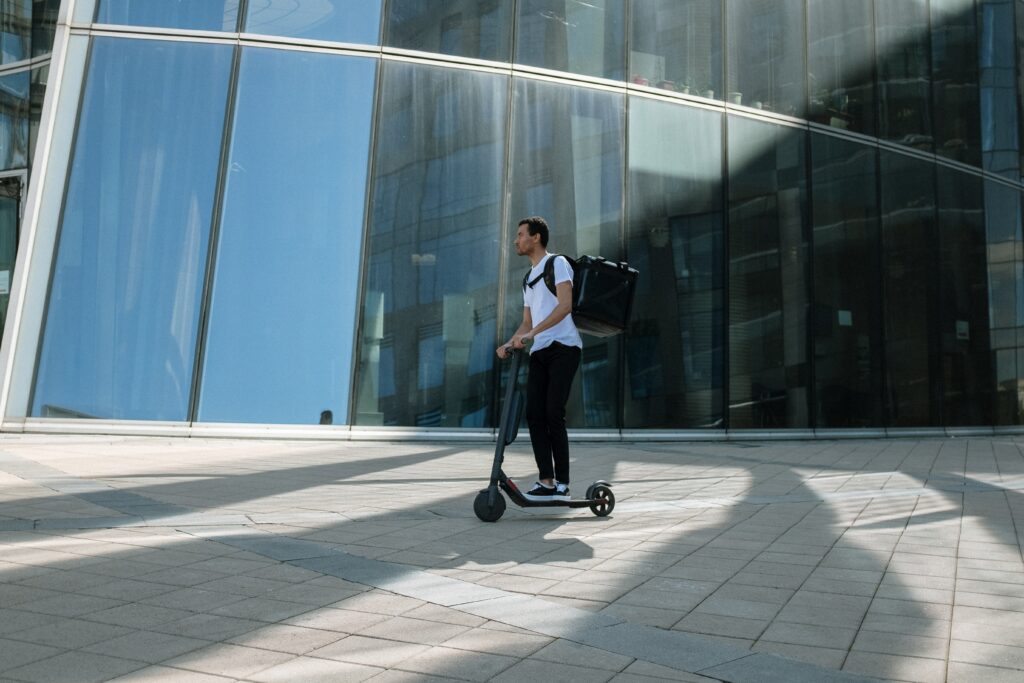E-scooters will be available to rent in London from this week as part of the year-long trial across Canary Wharf, Ealing, Fulham, Hammersmith, Kensington and Chelsea, and Richmond.
Electric scooters are becoming an increasingly common sight across towns and cities over the UK, yet it is not lawful to use e-scooters in public areas.
However, from Monday (7 June), six London boroughs will be commencing a year-long trial scheme for rental scooters to be permitted on roads and cycleways only – and not on footpaths.
Whilst the City of London Corporation pulled out of participating in the trial, Canary Wharf and the boroughs of Ealing, Fulham, Hammersmith, Kensington and Chelsea, and Richmond, will be renting the scooters to the public.
Lime, Dott and TIER have all been contracted to provide the e-scooters for the trial. They will have a maximum speed of 12.5 mph, below the 15.5 mph speed limit established by the Department of Transport.
‘The first benefit is that it is an alternative to car transport. We know there is an air quality crisis in London, and e-scooters are a completely zero emission form of transport,’ Alan Clarke, Director of Policy at Lime commented.
‘The second benefit is the possibility of cutting down congestion. For example, one in five journeys on a scooter is one that would have otherwise taken place in a car, minicab, or taxi, so there is a potential to take people out of cars and that is very good for how the city moves.’
Operators must make certain that rental prices are accessible to lower incomes, and even offer certain discounts to keyworkers and other groups of people. Prices typically lie within £1 to unlock an e-scooter and a fee of 14 – 20 pence a minute.
The trial will also use ‘geo-fencing’ technology to prevent any scooters being used outside of the set boundaries.
Moreover, privately owned scooters will not be allowed on London’s public roads, cycle lands, nor pavements.
Helen Sharp, e-scooter project lead for Transport for London, commented: ‘We are doing all we can to support London’s safe and sustainable recovery from the coronavirus pandemic, and it is clear that e-scooters could act as an innovative, greener alternative to car trips.’
Emma Gibson, Director of London Travel Watch, went on to highlight that: ‘Our research on future transport highlighted that personal/micro-mobility solutions have the potential to be a much greener transport option for many people.
‘However, there have been a number of incidents and accidents in other parts of the country which have already trialled e-scooter hire schemes, so there will also be a need for enforcement against users who endanger others through anti-social behaviour or by riding on the pavement.
‘TfL and local councils must also ensure that when not being used, scooters are kept in places that do not obstruct the pavement.’
Photo Credit: Cottonbro / Pexels




